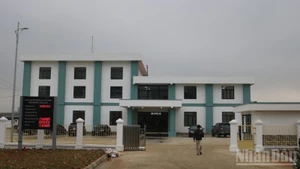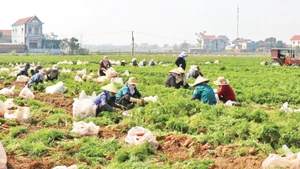According to Le Quoc Thanh, Director of the National Agricultural Extension Centre, Vietnam’s favourable natural conditions support the production of over 120 types of tropical, subtropical, and temperate vegetables. Thanks to technological advances, year-round cultivation is now possible, serving both domestic and export markets.
Between 2016 and 2024, the total vegetable cultivation area increased by 1.4% annually, while output rose by 2.6% per year, reaching over 1 million ha and 19 million tonnes in 2024.
To expand globally, Vietnam’s fruit and vegetable sector must strengthen its value chain, from farm to packaging and processing. This includes supporting farmers in transitioning to organic and biological farming methods that meet international standards, thereby enhancing competitiveness and ensuring sustainable market access.
Le Vu Ngoc Kien from the Institute of Policy and Strategy for Agriculture and Rural Development shared that Vietnam’s fruit-growing area had reached 1.33 million hectares by 2023, with an annual growth rate of 5.7% from 2019 to 2023. However, Vietnam’s global market share remains modest at 1.9%, with low levels of processing, packaging, and policy support.
Kien proposed boosting quality standards, developing raw material zones, investing in technology to improve yield and value-added processing, and focusing on large and high-potential markets like China and the US.
The workshop concluded with an exchange of practical solutions among stakeholders, aimed at overcoming technical barriers and elevating Vietnamese produce on the global stage.
















